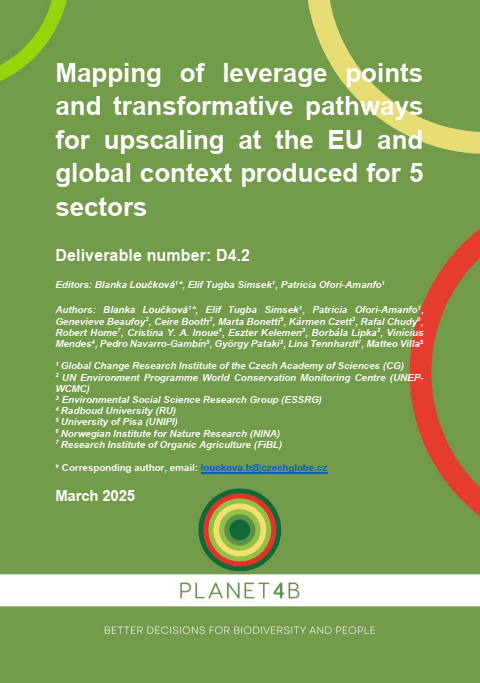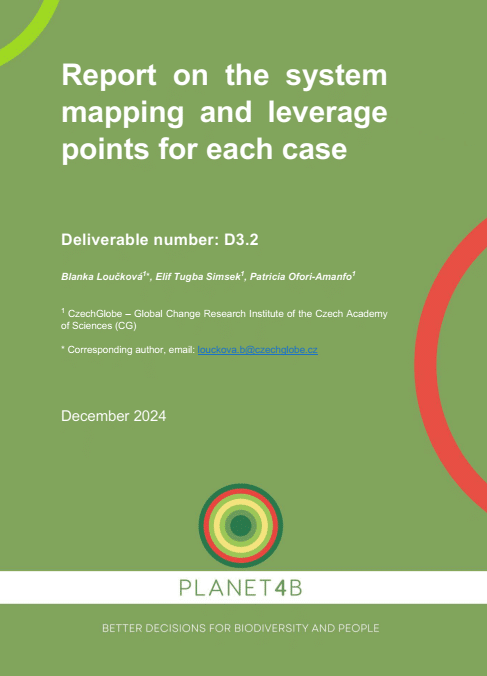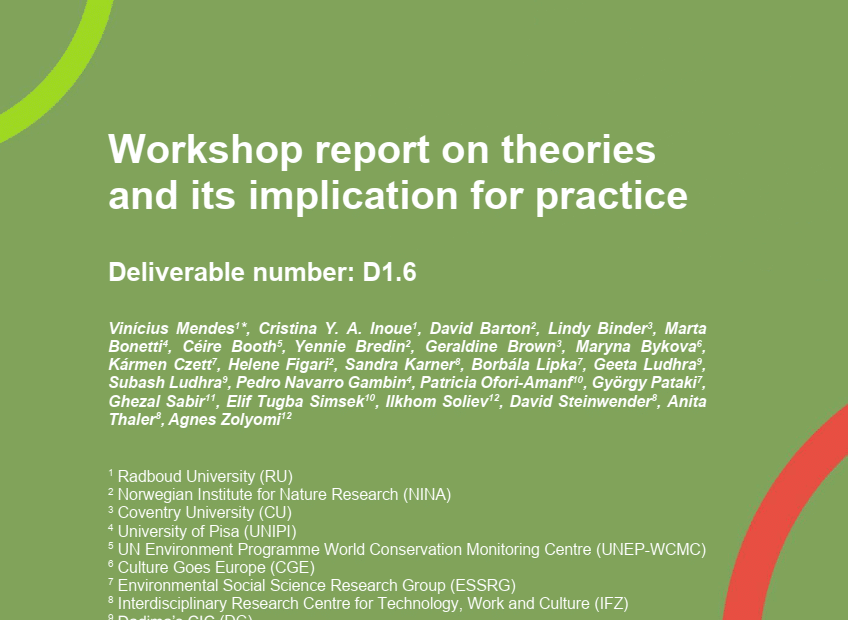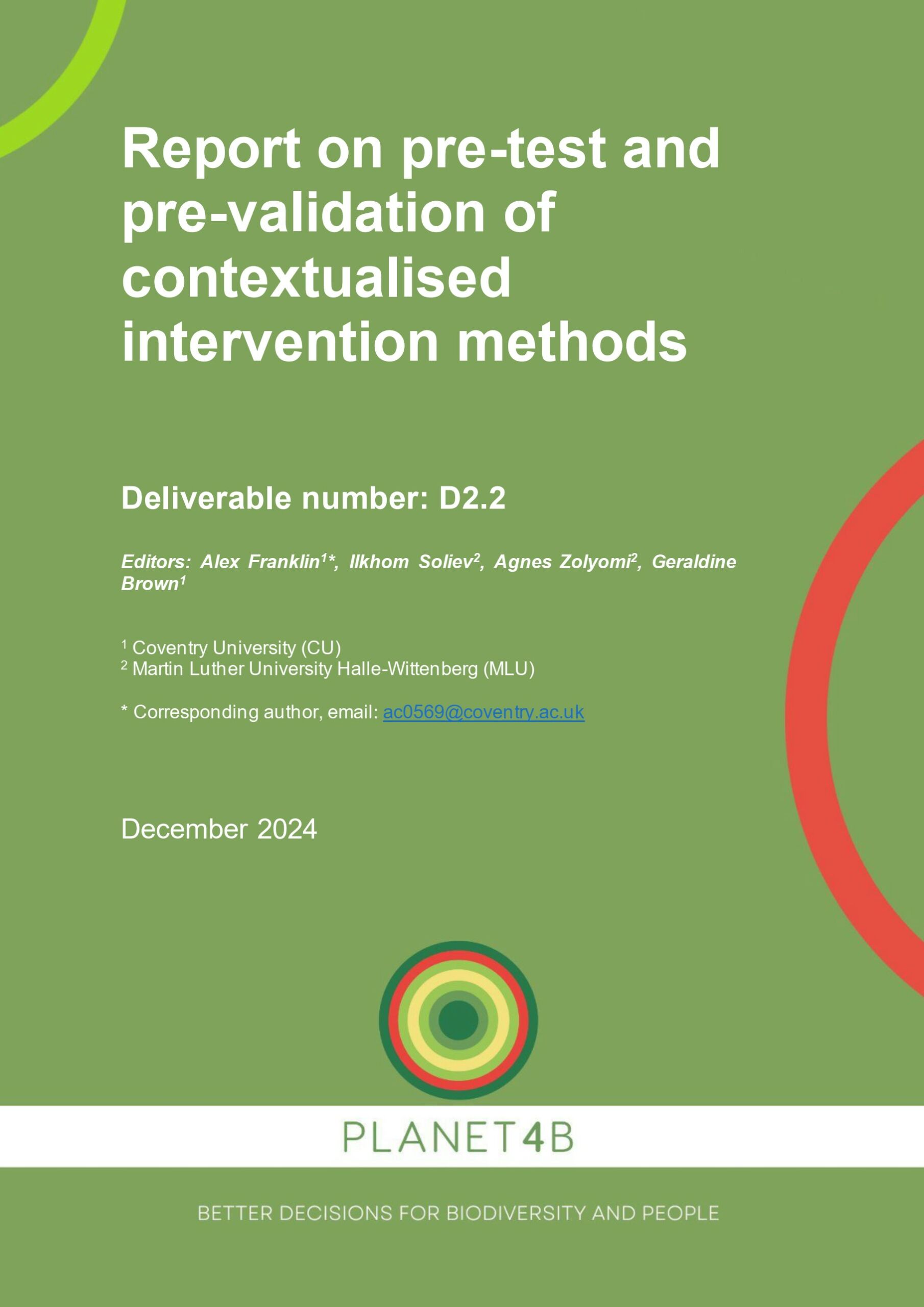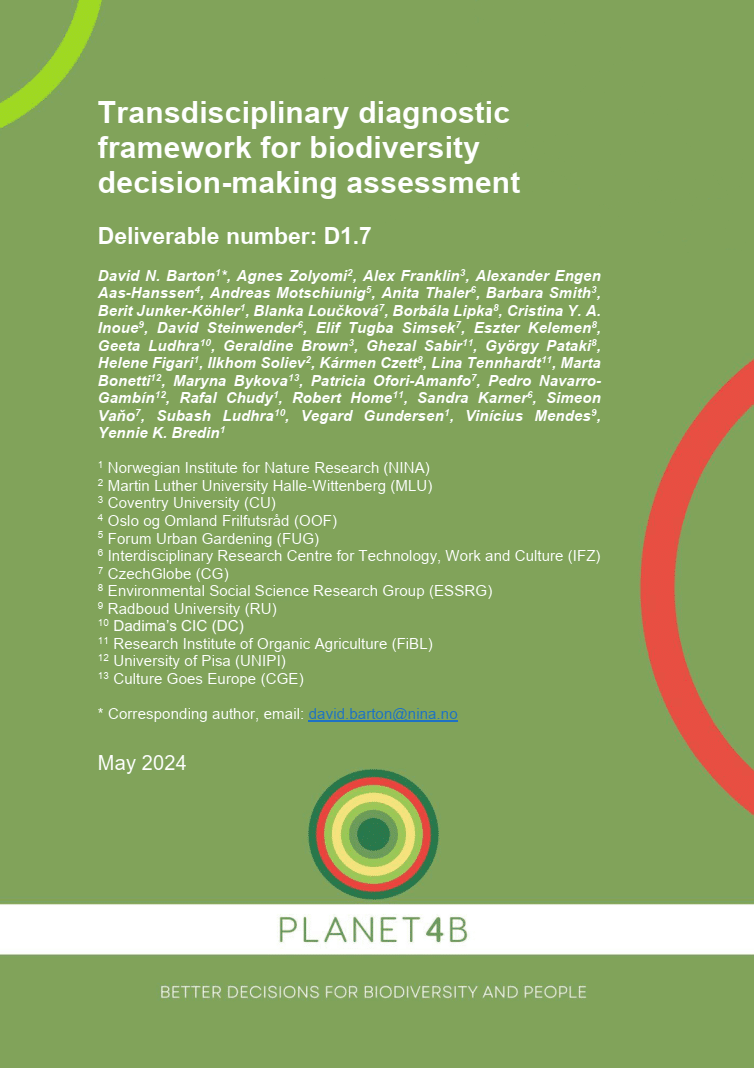Project documents
Read and download the materials, reports and publications developed throughout the project.
Latest documents
- Biodiversity brief intersectionality PolicyResearch brief
The Road to Global Impact: Scaling Transformation in the EU & Beyond
Current main trends in the five key sectors —agriculture, education, the fashion industry, finance, and trade— contribute to biodiversity loss by driving resource exploitation and overuse through globalised, standardised systems. PLANET4B’s research report Mapping of Leverage Points and Transformative Pathways for Upscaling in the EU and Global Context for Five Sectors identifies key leverage points [...]
- Behaviour Biodiversity intersectionality Policy researchResearch report
Mapping of leverage points and transformative pathways for upscaling at the EU and global context produced for 5 sectors
This report maps leverage points and transformative pathways for enhancing transformative change in five sectors – agriculture, finance, trade, education, and fashion– across both EU and global contexts, based on the analysis conducted within the PLANET4B project and drawing from six extensive sector based cases within this project.
- Behaviour Biodiversity intersectionality researchResearch report
Report on the system mapping and leverage points for each case
This report summarises the results of system mapping and leverage points from all case studies conducted within the PLANET4B project, which aims to foster transformative change in biodiversity decision-making. […]
All documents
- Behaviour Biodiversity intersectionality Policy researchResearch report
This report maps leverage points and transformative pathways for enhancing transformative change in five sectors – agriculture, finance, trade, education, and fashion– across both EU and global contexts, based on the analysis conducted within the PLANET4B project and drawing from six extensive sector based cases within this project.
- Behaviour Biodiversity intersectionality researchResearch report
This report summarises the results of system mapping and leverage points from all case studies conducted within the PLANET4B project, which aims to foster transformative change in biodiversity decision-making. […]
- Behaviour Biodiversity brief intersectionality researchResearch brief
Guidelines for transdisciplinary research
The latest analysis of the PLANET4B project - Transdisciplinary diagnostic framework for biodiversity decision-making assessment - summarises the results of nearly one and a half years of intensive methodological research. This comprehensive study proposes a methodological framework that helps examine decision-making and influencing decisions about biodiversity by involving numerous scientific disciplines. Read about the findings of our latest research report in brief.
- Behaviour Biodiversity researchWorkshop report
The aim of the joint working methodology is to understand each other's knowledge base, mindset and expectations, so that project partners (academics, practice partners and societal stakeholders) can work effectively on common research topics. To address this challenge, social science theories and methodologies applied in the project were debated in a workshop to explore their practical implications for research, interventions, policy, and communication. The report summarises the process and outcomes of [...]
- Behaviour intersectionality researchResearch report
This report documents the internal PLANET4B process of selecting, pre-testing, adapting and aligning individual research-based intervention methods to the eleven individual case studies. It provides an overview of how the task of aligning intervention methods to intersectional and biodiversity challenges of individual case studies was managed by the Task leads and engaged with by the wider consortium, including through a range of collective – online, offline, in-person, plenary, small-group – and independent case study level working. [...]
- Behaviour Biodiversity intersectionality researchResearch report
This deliverable describes the process of developing a transdisciplinary diagnostic framework for biodiversity decision-making carried out in Work Package 1 of the EU funded research project PLANET4B. The aim of the process was to help researchers and practitioners in our project become more conscious of the theoretical approaches and languages that may condition the interventions we study and the policy and additional recommendations that we make to societal actors. The [...]


